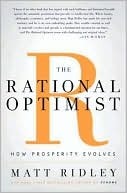More on this book
Community
Kindle Notes & Highlights
by
Matt Ridley
Read between
September 10, 2018 - January 25, 2019
‘Every generation has perceived the limits to growth that finite resources and undesirable side effects would pose if no new recipes or ideas were discovered. And every generation has underestimated the potential for finding new recipes and ideas. We consistently fail to grasp how many ideas remain to be discovered.’ By far the most dangerous, and indeed unsustainable thing the human race could do to itself would be to turn off the innovation tap. Not inventing, and not adopting new ideas, can itself be both dangerous and immoral.
Futurology always ends up telling you more about your own time than about the future.
Empires bought stability at the price of creating a parasitic court; monotheistic religions bought social cohesion at the price of a parasitic priestly class; nationalism bought power at the expense of a parasitic military; socialism bought equality at the price of a parasitic bureaucracy; capitalism bought efficiency at the price of parasitic financiers. The online world will attract parasites too: from regulators and cyber-criminals to hackers and plagiarists. Some of them may temporarily throttle their generous hosts.
will be hard to snuff out the flame of innovation, because it is such an evolutionary, bottom-up phenomenon in such a networked world. However reactionary and cautious Europe and the Islamic world and perhaps even America become, China will surely now keep the torch of catallaxy alight, and India, and maybe Brazil, not to mention a host of smaller free cities and states.
So long as human exchange and specialisation are allowed to thrive somewhere, then culture evolves whether leaders help it or hinder it, and the result is that prosperity spreads, technology progresses, poverty declines, disease retreats, fecundity falls, happiness increases, violence atrophies, freedom grows, knowledge flourishes, the environment improves and wilderness expands.


